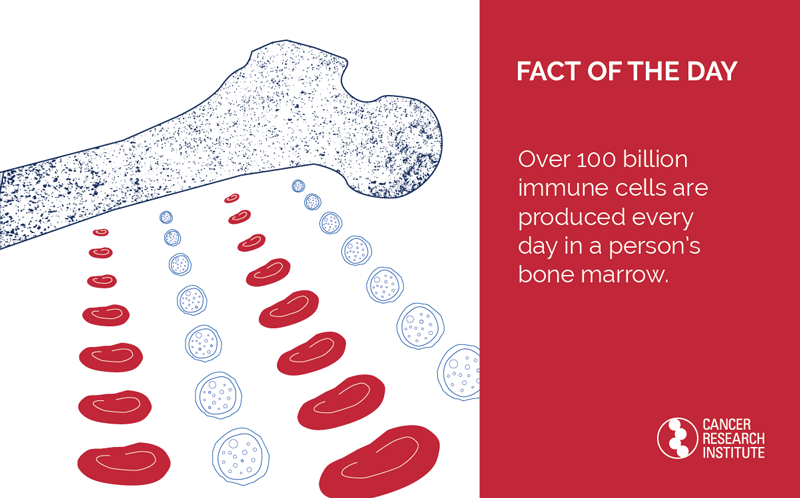 Over 100 billion immune cells are produced every day in a person’s bone marrow.
Over 100 billion immune cells are produced every day in a person’s bone marrow.
All of our blood cells—both red (oxygen-transporting) and white (immune/disease-fighting)—are generated from stem cells that reside inside the marrow of our bones. All in all, these stem cells give rise to over a dozen different subsets of immune cells. CRI scientists discovered several of these immune cell types, including Natural Killer (NK) cells (Georg Klein, M.D, D.Sc.) and regulatory T cells (Shimon Sakaguchi, M.D., Ph.D.).
Immunotherapies such as bone marrow transplants (also called stem cell transplants) have long been used to treat leukemia and restore patients with healthy immune systems.
However, there are still significant issues associated with these transplants. In addition to the toxicity of pre-transplant chemotherapy, transplants aren’t always effective. And even when the they do work, patients still often have to take immunosuppressive drugs that can leave them vulnerable to infection and future cancer relapse.
The following CRI-funded scientists are researching ways to overcome these issues and improve both the safety and effectiveness of bone marrow transplants for cancer patients.
Image credit: Cancer Research Institute